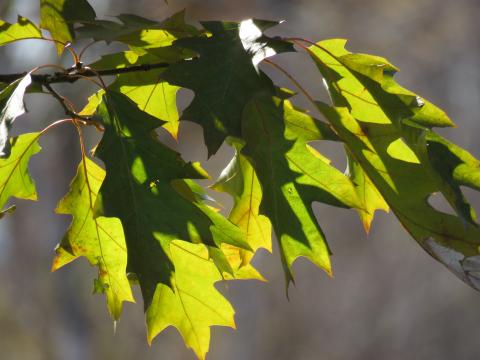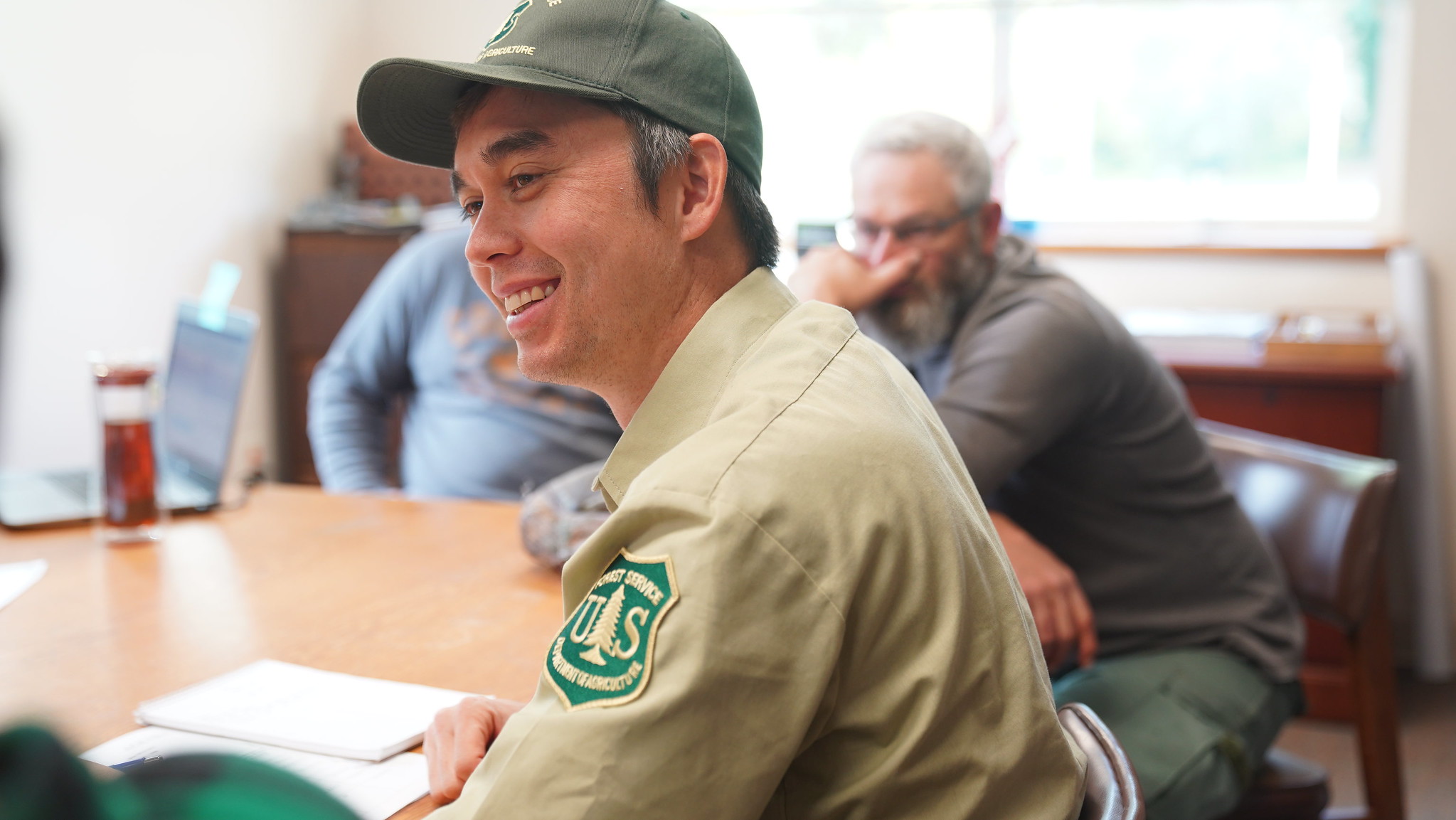2nd Quarter Accomplishments of the Northern Forests Climate Hub
Highlights from our work in the second quarter of fiscal year 2023 (January-March).

Balancing Climate, Carbon, and Biodiversity Goals in Wisconsin
Land management actions such as prescribed fire and forest harvesting can sometimes present tradeoffs between achieving ecological outcomes and increasing carbon storage. The Nature Conservancy, the USDA Northern Forests Climate Hub, and Northern Institute of Applied Climate Science are helping illustrate and describe these potential tradeoffs. Using the Adaptation Workbook planning process, a team of specialists developed adaptation responses that meet biodiversity goals, while also considering the implications of management actions on carbon storage and sequestration. The workshop targeted the TNC Meyer Preserve in southeast Wisconsin with a focus on oak savanna and non-forested wetlands at the Preserve.
Helping Maryland Create Sustainable Forestry Initiative Certifiable Adaptation Plans
The 2022 Sustainable Forestry Initiative (SFI) Forest Management Standard includes a new Objective on “Climate-Smart Forestry,” which sets expectations for SFI-certified organizations related to climate change risk assessment, adaptation, and carbon management. The USDA Northern Forests Climate Hub is helping certified organizations understand these new certification expectations and providing training and tools to help meet the requirements. For example, the Northern Forests Climate Hub and Northern Institute of Applied Climate Science designed a workshop to help the Maryland DNR Forest Service complete a climate change risk analysis and adaptation plan on State-owned certified lands. This workshop, and others like it, are helping to ensure that SFI-certified forests are managed with necessary consideration of climate change risks and potential adaptation actions.


Incorporating Soil Carbon and Climate Change into Project Planning
Forest Service soil scientists play a vital role in maintaining the health and productivity of our National Forests. As climate change continues to alter precipitation patterns and seasonal conditions across the country, soil scientists are looking for information and guidance to understand how their conventional safeguards and best management practices might need to be adjusted to account for new conditions. The USDA Northern Forests Climate Hub and Northern Institute of Applied Climate Science partnered with the Forest Service Northern Research Station and Office of Sustainability and Climate to provide training on this topic. The project partners developed new training on “Soil Carbon and Climate Change” as the final part of an 8-module series for soil scientists on National Forests from around the country.
Questions? Contact the USDA Northern Forests Climate Hub staff

